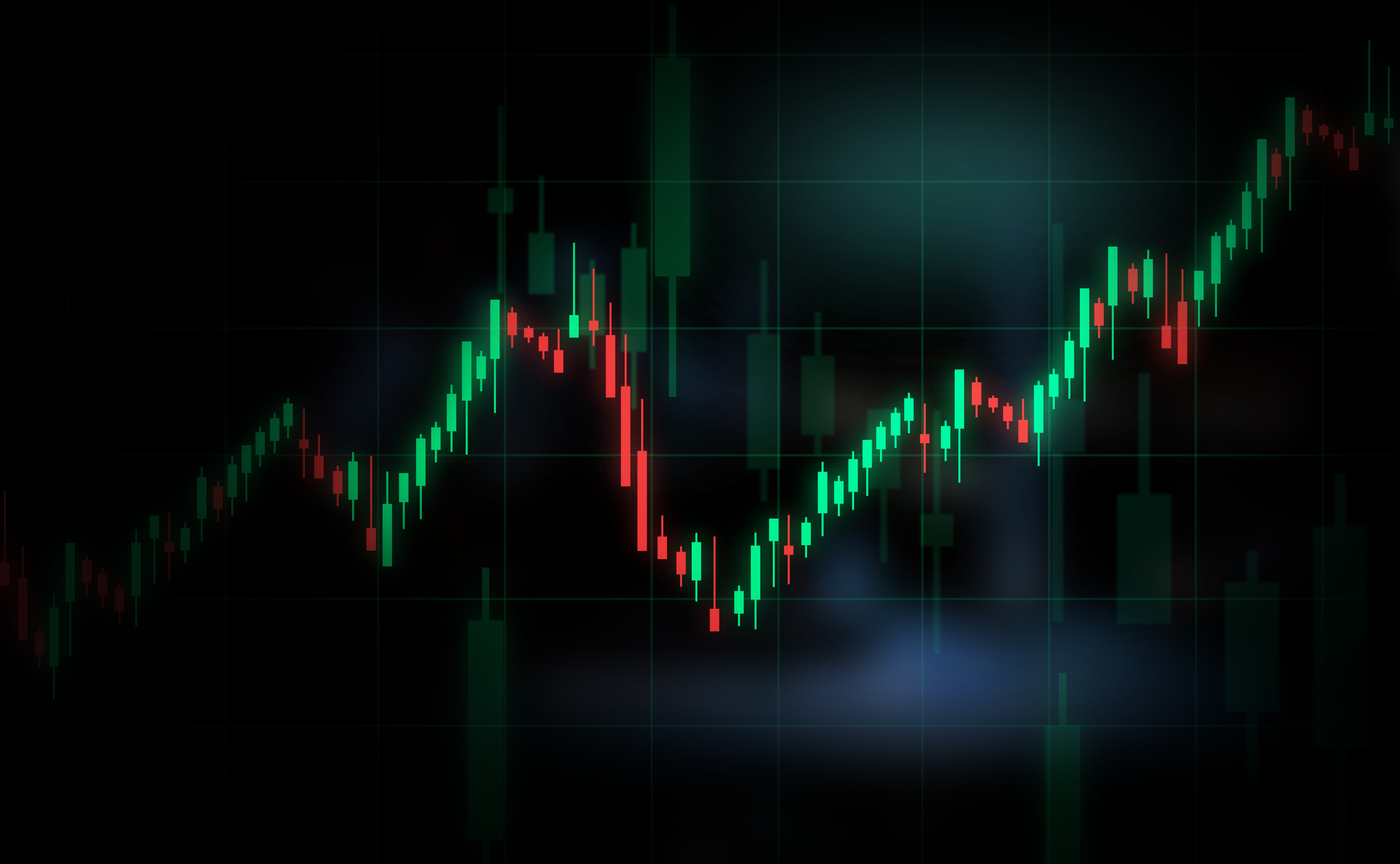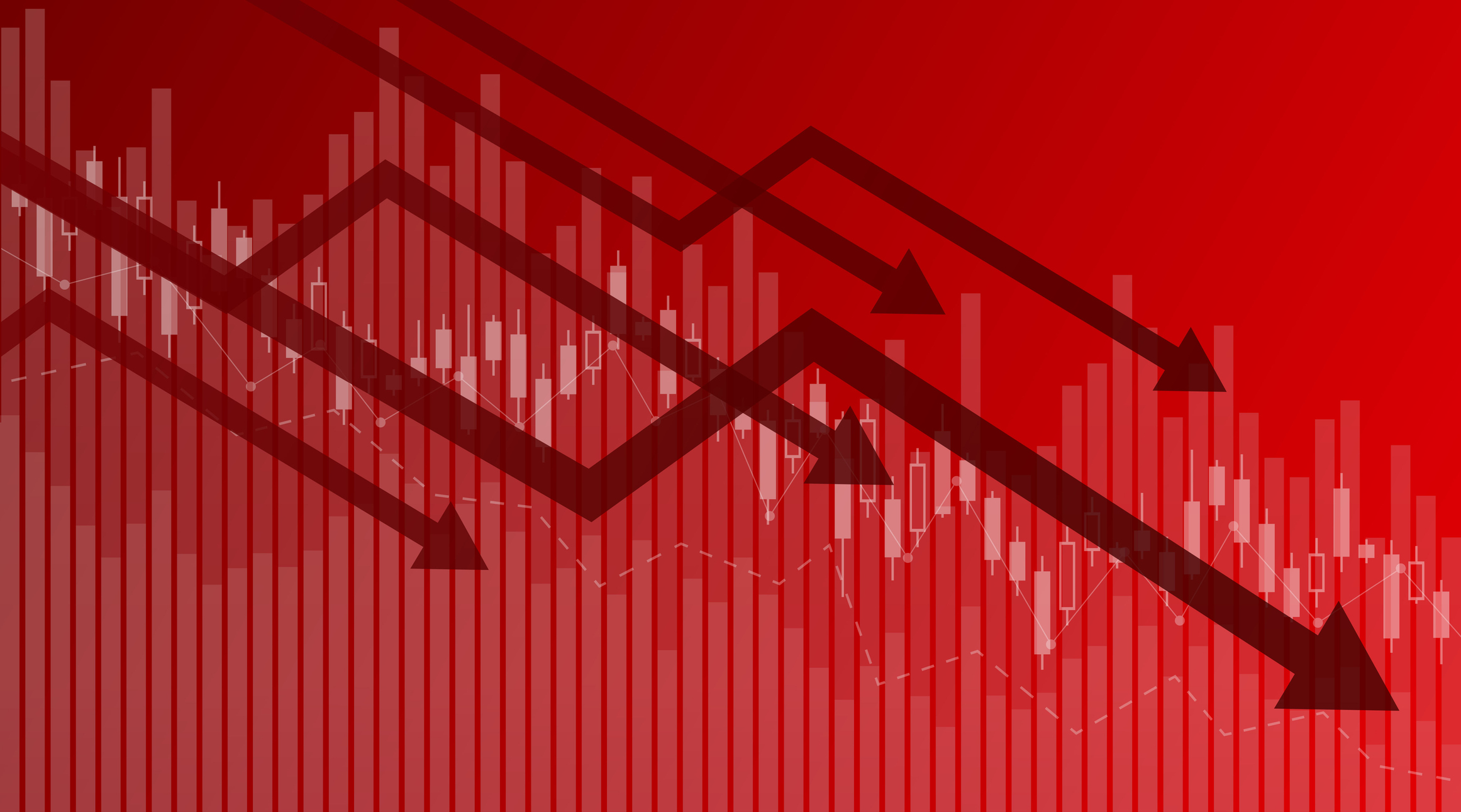The Five Safest Vanguard Funds to Own in a Volatile Market
The safest Vanguard funds can help prepare investors for market tumult but without high fees.

Karee Venema

Profit and prosper with the best of Kiplinger's advice on investing, taxes, retirement, personal finance and much more. Delivered daily. Enter your email in the box and click Sign Me Up.
You are now subscribed
Your newsletter sign-up was successful
Want to add more newsletters?

Delivered daily
Kiplinger Today
Profit and prosper with the best of Kiplinger's advice on investing, taxes, retirement, personal finance and much more delivered daily. Smart money moves start here.

Sent five days a week
Kiplinger A Step Ahead
Get practical help to make better financial decisions in your everyday life, from spending to savings on top deals.

Delivered daily
Kiplinger Closing Bell
Get today's biggest financial and investing headlines delivered to your inbox every day the U.S. stock market is open.

Sent twice a week
Kiplinger Adviser Intel
Financial pros across the country share best practices and fresh tactics to preserve and grow your wealth.

Delivered weekly
Kiplinger Tax Tips
Trim your federal and state tax bills with practical tax-planning and tax-cutting strategies.

Sent twice a week
Kiplinger Retirement Tips
Your twice-a-week guide to planning and enjoying a financially secure and richly rewarding retirement

Sent bimonthly.
Kiplinger Adviser Angle
Insights for advisers, wealth managers and other financial professionals.

Sent twice a week
Kiplinger Investing Weekly
Your twice-a-week roundup of promising stocks, funds, companies and industries you should consider, ones you should avoid, and why.

Sent weekly for six weeks
Kiplinger Invest for Retirement
Your step-by-step six-part series on how to invest for retirement, from devising a successful strategy to exactly which investments to choose.
Vanguard funds are known as practical tools for the buy-and-hold-forever crowd. Their straightforward strategies, broad portfolios and generally low costs are conducive to investors who want to sit back and let compounding do the work for a decade or two.
But in a pinch, the safest Vanguard funds can also be used to play a little defense.
How we chose the safest Vanguard funds
To find the safest Vanguard exchange-traded funds (ETFs) and mutual funds for a volatile market, we looked for those that represent some of the most useful defensive sectors and strategies, including those that contain the best dividend stocks or the best health care stocks.
We also targeted funds that boast Vanguard's below-average expenses. "True, some competitors can now match or even undercut Vanguard on fees for broad market exposure," writes Alec Lucas, director of manager research and active funds research for Morningstar. "But Vanguard's burgeoning advice business could help it keep or even extend that lead."
Remember that when it comes to positioning your portfolio for volatility, markets eventually stabilize. If you do jump into the safest Vanguard funds for short-term defense, pay attention and be nimble.
With that in mind, here are five of the safest Vanguard funds to own in a volatile market. When applicable, we'll let you know when these portfolios come in both ETF and mutual fund form.
Data is as of October 21. Dividend yields represent the trailing 12-month yield, a standard measure for equity funds.

Vanguard Health Care ETF
- Type: Sector (Health Care)
- Assets under management: $15.3 billion
- Dividend yield: 1.4%
- Expenses: 0.09%, or $9 annually for every $10,000 invested
- Also available as: Vanguard Health Care Index Fund Admiral Shares (VHCIX, 0.09% expenses, $100,000 minimum investment)
Health care stocks are known for their defensive qualities because of the essential services they provide. If money's tight, you can put off buying a virtual reality headset or a trip to the Bahamas, but you can't exactly go off your medications and avoid the doctor.
Health care spending is projected to grow at a rate that far outpaces inflation. According to the Centers for Medicare & Medicaid Services (CMS), national health expenditures are expected to grow at an average annual rate of 5.6% through 2032.
That's why the Vanguard Health Care ETF (VHT) is one of the safest Vanguard funds to own in a volatile market. Among the best Vanguard ETFs, it's an extremely cost-efficient way to diversify, giving you access to 400 health care stocks for a mere 9 basis points in annual fees.
VHT is market cap-weighted, which means the larger a company is by market capitalization, the more assets the fund will invest in its shares. Mega- and large-cap stocks have the biggest impact on performance, at nearly 66% of the fund's weight.
But you also enjoy some exposure to mid- and small-cap stocks, which allows you to benefit from explosive smaller biotech and biopharma names that can take off on events such as drug-trial results and mergers and acquisitions.
Top holdings include insurer UnitedHealth Group (UNH) and pharmaceutical names Eli Lilly (LLY) and AbbVie (ABBV).

Vanguard Consumer Staples ETF
- Type: Sector (Consumer Staples)
- Assets under management: $7.2 billion
- Dividend yield: 2.2%
- Expenses: 0.09%
- Also available as: Vanguard Consumer Staples Index Fund Admiral Shares (VCSAX, 0.09% expenses, $100,000 minimum investment)
Consumer staples is another sector that tends to be more resilient during volatile markets for the same reason as health care.
If you're in a money crunch, you'll look at a lot of different ways to cut back. You might go to the movies less. You might not go out to restaurants as much. Maybe you'll pare down your five streaming services to four.
You'll look at spending less on just about anything before you cut back on consumer staples such as toilet paper, toothpaste and basic grocery essentials.
That's why the Vanguard Consumer Staples ETF (VDC) is among the safest Vanguard funds for market uncertainty.
This ETF provides exposure to more than 100 companies that specialize in human necessities. Procter & Gamble (PG) tackles everything from facial care to tushy wipes. Mondelez International (MDLZ) sells a bevy of cheap snacks — think Chips Ahoy! and Ritz Crackers — that are mainstays in American pantries.
It also holds Walmart (WMT), Costco Wholesale (COST) and Target (TGT), which sell all of these items.
You'll also find companies such as Marlboro parent Altria (MO) and alcohol giant Constellation Brands (STZ). While you might not consider cigarettes and alcohol to be "necessities," people are just as loath to cut back on them as they are other staples.
As with many Vanguard ETFs, VDC can be had at an absolute song: Expenses are just 9 basis points per year.

Vanguard High Dividend Yield ETF
- Type: Dividend stock
- Assets under management: $65.9 billion
- Dividend yield: 2.5%
- Expenses: 0.06%
- Also available as: Vanguard High Dividend Yield Index Fund Admiral Shares (VHYAX, 0.08% expenses, $3,000 minimum investment)
The best dividend stocks have historically outperformed their nondividend-paying counterparts during market uncertainty.
According to Merrill, dividend stocks can be "particularly useful when markets are volatile." For one, the private wealth management firm says, they provide investors with income, which can help meet their liquidity needs.
Additionally, "dividend-focused investing has historically demonstrated the ability to help to lower volatility and buffer losses during market drawdowns," Merrill adds.
With this in mind, investors might want to consider the Vanguard High Dividend Yield ETF (VYM), which tracks an index of high-yielding dividend stocks. On a total-return basis (price plus dividends), the S&P 500 is up more than 15% since the start of the year, while VYM has gained 12.3%.
But VYM outperformed the S&P 500 for much of the first six months of 2025 as stock market volatility ramped up in response to President Donald Trump's aggressive tariff policies.
This Vanguard fund boasts a wide portfolio of 565 or so high-yielding stocks that collectively yield 2.6% at present. (That's roughly double the S&P 500.)
It's worth noting that, at 21.6% of assets, financial stocks — not really considered safety plays — are the best-represented sector in VYM. But the traditionally defensive health care (12.4%) and consumer staples (9.3%) sectors also carry significant weight in the portfolio.
Top dividend payers in the portfolio right now include blue chip stocks such as Home Depot (HD), ExxonMobil (XOM), and JPMorganChase (JPM).

Vanguard Global Minimum Volatility Fund Investor Shares
- Type: Minimum-volatility global stock
- Assets under management: $2.1 billion
- Dividend yield: 1.7%
- Expenses: 0.21%
Among the most popular ways to fight off a turbulent market are low-volatility (low-vol) and minimum-volatility (min-vol) ETFs.
What's the difference? Low-volatility ETFs evaluate a universe of stocks and pick out the ones that have shown the least volatility over a certain period of time, hoping to create the lowest-volatility portfolio it can.
Minimum-volatility ETFs typically try to minimize volatility within a certain benchmark while still resembling the original benchmark in some way.
For instance, an S&P 500 low-vol fund that picks the 20 lowest-volatility stocks in the index might end up holding nothing but utility stocks.
However, an S&P 500 min-vol fund might try to identify low-volatility stocks, but it might be forced to have at least some percentage invested in all 11 sectors, resulting in a portfolio that's not as volatile as the S&P 500 but possibly not as calm as a low-vol fund.
Vanguard doesn't have many options for investing in either type of strategy, but one that does its job is the Vanguard Global Minimum Volatility Fund Investor Shares (VMVFX). This actively managed fund aims to provide minimum volatility compared with the global equity market.
Like most global funds, VMVFX dedicates the bulk of its assets (63.7%) to American stocks, with the rest spread across several other countries such as the U.K., Canada and India.
From a construction standpoint, VMVFX exemplifies the minimum-volatility mindset. Its sector allocation looks somewhat similar to the category average but with a few tweaks reflecting its goal of reducing volatility.
For instance, it holds a few more percentage points of health care (12.2%) and consumer staples (9.6%) than the category average, but a little less technology (21.2%) and consumer discretionary (10.6%).
There is a $3,000 minimum investment for this Vanguard fund.

Vanguard Ultra-Short Bond ETF
- Type: Ultra-short bond
- Assets under management: $5.8 billion
- SEC yield: 4.8%*
- Expenses: 0.10%
We mentioned earlier that when the market's a mess, investors seek out income. That can include dividend stocks, but it often includes bonds, too.
Bonds don't hold a candle to stocks when it comes to long-term returns. But they provide much more stability, serve a vital role in protecting your savings and can produce a decent return from their interest payments.
One of the safest bets you can make in bonds, if you're looking to protect your money in a down market, is short-term debt.
Typically, the shorter the payback term for a bond, the less uncertainty there is that debt will be paid off — a lot more can happen during the life of a 30-year bond than during the life of a one-year bond.
Enter the Vanguard Ultra-Short Bond ETF (VUSB), which holds bonds that mature in less than two years.
The Vanguard Ultra-Short Bond ETF is an ultimate example of how useful cheap index funds are. Individual bonds are extremely difficult to research, and they're not exactly easy to buy, either.
But with VUSB, you're plugged into a Vanguard-run portfolio of some 1,110 different debt issues — an instant diversified fixed-income portfolio for just 10 basis points a year.
Another reason VUSB is on this list of safest Vanguard funds? Virtually the entire portfolio boasts investment-grade ratings, which basically means there's an extremely high likelihood that these bonds will be fully repaid.
How steady is VUSB? Shares are up 4.3% for the year to date.
Learn more about VUSB at the Vanguard provider site.
* SEC yield reflects the interest earned for the most recent 30-day period after deducting fund expenses. SEC yield is a standard measure for bond funds
Related content
Profit and prosper with the best of Kiplinger's advice on investing, taxes, retirement, personal finance and much more. Delivered daily. Enter your email in the box and click Sign Me Up.
Kyle Woodley is the Editor-in-Chief of WealthUp, a site dedicated to improving the personal finances and financial literacy of people of all ages. He also writes the weekly The Weekend Tea newsletter, which covers both news and analysis about spending, saving, investing, the economy and more.
Kyle was previously the Senior Investing Editor for Kiplinger.com, and the Managing Editor for InvestorPlace.com before that. His work has appeared in several outlets, including Yahoo! Finance, MSN Money, Barchart, The Globe & Mail and the Nasdaq. He also has appeared as a guest on Fox Business Network and Money Radio, among other shows and podcasts, and he has been quoted in several outlets, including MarketWatch, Vice and Univision. He is a proud graduate of The Ohio State University, where he earned a BA in journalism.
You can check out his thoughts on the markets (and more) at @KyleWoodley.
- Karee VenemaSenior Investing Editor, Kiplinger.com
-
 Quiz: Do You Know How to Avoid the "Medigap Trap?"
Quiz: Do You Know How to Avoid the "Medigap Trap?"Quiz Test your basic knowledge of the "Medigap Trap" in our quick quiz.
-
 5 Top Tax-Efficient Mutual Funds for Smarter Investing
5 Top Tax-Efficient Mutual Funds for Smarter InvestingMutual funds are many things, but "tax-friendly" usually isn't one of them. These are the exceptions.
-
 AI Sparks Existential Crisis for Software Stocks
AI Sparks Existential Crisis for Software StocksThe Kiplinger Letter Fears that SaaS subscription software could be rendered obsolete by artificial intelligence make investors jittery.
-
 Stocks Make More Big Up and Down Moves: Stock Market Today
Stocks Make More Big Up and Down Moves: Stock Market TodayThe impact of revolutionary technology has replaced world-changing trade policy as the major variable for markets, with mixed results for sectors and stocks.
-
 Dow Leads in Mixed Session on Amgen Earnings: Stock Market Today
Dow Leads in Mixed Session on Amgen Earnings: Stock Market TodayThe rest of Wall Street struggled as Advanced Micro Devices earnings caused a chip-stock sell-off.
-
 S&P 500 Tops 7,000, Fed Pauses Rate Cuts: Stock Market Today
S&P 500 Tops 7,000, Fed Pauses Rate Cuts: Stock Market TodayInvestors, traders and speculators will probably have to wait until after Jerome Powell steps down for the next Fed rate cut.
-
 S&P 500 Hits New High Before Big Tech Earnings, Fed: Stock Market Today
S&P 500 Hits New High Before Big Tech Earnings, Fed: Stock Market TodayThe tech-heavy Nasdaq also shone in Tuesday's session, while UnitedHealth dragged on the blue-chip Dow Jones Industrial Average.
-
 Nasdaq Leads Ahead of Big Tech Earnings: Stock Market Today
Nasdaq Leads Ahead of Big Tech Earnings: Stock Market TodayPresident Donald Trump is making markets move based on personal and political as well as financial and economic priorities.
-
 Nasdaq Adds 211 Points as Greenland Tensions Ease: Stock Market Today
Nasdaq Adds 211 Points as Greenland Tensions Ease: Stock Market TodayWall Street continues to cheer easing geopolitical tensions and President Trump's assurances that there will be no new tariffs on Europe.
-
 Dow Dives 870 Points on Overseas Affairs: Stock Market Today
Dow Dives 870 Points on Overseas Affairs: Stock Market TodayFiscal policy in the Far East and foreign policy in the near west send markets all over the world into a selling frenzy.
-
 Visa Stamps the Dow's 398-Point Slide: Stock Market Today
Visa Stamps the Dow's 398-Point Slide: Stock Market TodayIt's as clear as ever that President Donald Trump and his administration can't (or won't) keep their hands off financial markets.

